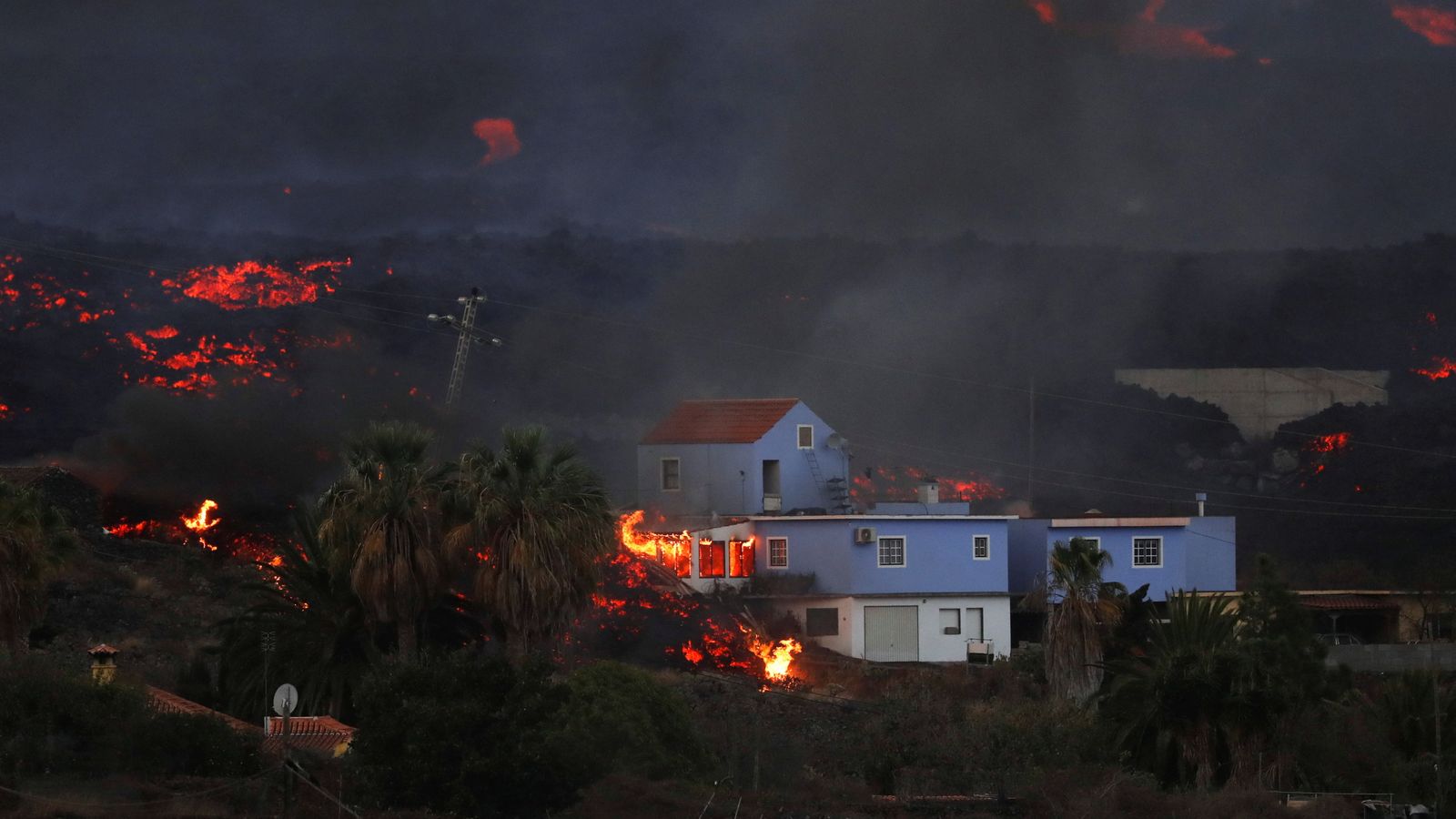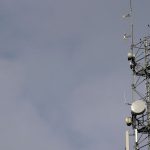A drone pilot in Spain has received permission to try to rescue three emaciated dogs trapped by the volcanic eruption on the island of La Palma.
Jaime Pereira plans to catch the dogs using a remote-controlled wide net and then fly them 450 metres across the streams of lava as the month-long eruption continues with no end in sight, according to Canary Islands officials.
The three dogs have been stranded for weeks reported Reuters, and although they have been fed by drones dropping packages of food there has until now been no proposal for rescuing them.
Follow the Daily podcast on Apple Podcasts, Google Podcasts, Spotify, Spreaker
Streams of lava have continued to pour from the volcano at the heart of the island, laying waste to more than 742 hectares (1,833 acres) of land and wide area has been covered with volcanic ash and the ash plume continues to be several miles high.
Helicopter journeys are prohibited because of the hot volcanic gasses which could damage their rotors.
Mr Pereira, who runs a drone operations company called Aerocamaras, told Reuters he plans to fly a 50kg drone to trap the dogs one by one and fly them to safety.
La Palma volcano: Eruption on Canary Island shows no sign of slowing, officials say
La Palma volcano eruption: Lockdown lifted for residents after lava swallowed factory sparking fears over toxic fumes
La Palma volcano: New satellite images show violent eruption from space as lava flows across island
“It’s the first time an animal is being rescued with a drone and the first time it has to be captured,” Mr Pereira explained to Reuters. “If that’s the last option that the dogs have? Then we’re going after them.”
The operator will have just four minutes to lure a dog to the net, and another four minutes to fly it out.
“What we don’t want is to run out of battery when flying over the lava,” he added.
Test flights are continuing ahead of the attempted rescue, but Mr Pereira said that the mission ultimately depended on how the dogs responded to the machine itself.
“They’ve been eating very little for weeks. They might come, or become scared of the drone. We really depend on their reaction.”






















